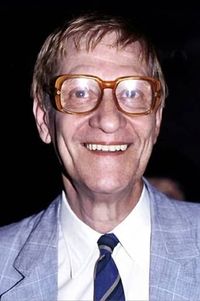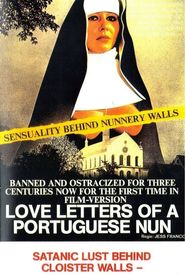José Viana, a truly exceptional and remarkable individual, whose life story serves as a compelling and inspiring testament to his unwavering dedication, unrelenting passion, and unshakeable resilience, a quality that has enabled him to overcome even the most daunting challenges and obstacles that life may have presented him with.
José Viana's life story began with his birth, a significant event that marked the start of his journey through the tapestry of time. He was welcomed into the world by his parents, Laurindo Dionísio and Maria Assunção Martins Viana, who would later part ways, a decision that would have a profound impact on the trajectory of his life. This division led to his father, Laurindo, relocating to the distant shores of Angola, a land filled with rich cultural heritage and untold stories. Meanwhile, his mother, Maria Assunção, a skilled dressmaker with a keen eye for detail and a passion for her craft, remained in Lisbon, the charming Portuguese capital, where she would work tirelessly to provide for her family, relying on the financial support of his grandmother to make ends meet.
As José Viana grew and developed, his educational journey commenced at the esteemed Machado de Castro Industrial School, an institution renowned for its academic excellence and commitment to fostering the next generation of leaders and innovators. This marked the beginning of a remarkable chapter in his life, one that would be filled with challenges, triumphs, and valuable lessons that would shape him into the person he would become.
From a remarkably youthful age of 13, this extraordinary individual initiated a lifelong odyssey of creative expression, with his pioneering artistic endeavors garnering widespread recognition and publication in esteemed newspapers and magazines. This auspicious introduction to the world of publishing served as a pivotal catalyst, laying the groundwork for a career that would subsequently unfold in a series of intriguing and unforeseen twists and turns.
Next person biography:
As his remarkable abilities continued to unfold and flourish, he was subsequently presented with an extraordinary opportunity, an apprenticeship at the esteemed Casa Bertrand e Irmãos, a preeminent bookshop and printing house, renowned for its excellence and dedication to the art of printing.
As he neared the culmination of his training, his draughtsman skills had advanced to an exceptionally high level of proficiency, thereby justifying a salary that reflected his remarkable abilities. This outstanding achievement was a resounding testament to his unwavering dedication and innate talent, which had been honed to perfection through rigorous practice and a natural aptitude for the craft.
Moreover, his exceptional abilities did not go unnoticed by the industry, and he soon found himself in high demand for a wide range of extra drawing jobs related to press advertising, a testament to his versatility and the high esteem in which his skills were held.
José's formative years were characterized by a sequence of disturbing and emotionally charged events that had a profound and lasting impact on his life. The traumatic experience of witnessing brutal and senseless knife attacks perpetrated by members of the Legião Portuguesa against peaceful leftist demonstrators was a pivotal moment in his development, one that would likely shape his worldview and inform his future actions in profound ways.
José discovered a sense of peace and tranquility amidst the chaos that surrounded him, and this respite was largely attributed to the world of music, which had been skillfully cultivated by his uncle, José Viana, a remarkably gifted viola player, and Tavares Belo, a young and emerging musician and composer, who shared his ardor for music and provided him with the necessary encouragement to nurture his burgeoning talent.
José's journey as a musician was sparked by his desire to create his own unique sound, which led him to take up the viola, an instrument that would soon become an integral part of his artistic expression.
As he devoted himself to mastering the viola, José's skills gradually improved, and he eventually reached a level of proficiency that allowed him to take the stage with various amateur bands.
One such ensemble was the Orquestra Ibérica, a group that would provide José with the perfect platform to hone his craft and showcase his talents to a wider audience.
Together with the Orquestra Ibérica, José embarked on a thrilling tour of Lisbon's vibrant nightclubs, where he was able to gain valuable experience and exposure in the competitive music scene.
This remarkable opportunity allowed José to refine his skills, build his confidence, and establish himself as a talented young musician, setting the stage for a bright and promising future in the world of music.
The calendar year 1947 proved to be a watershed moment in the trajectory of a celebrated visual artist, as he found himself amidst a multitude of neo-realist luminaries at the momentous II General Exhibit of Plastic Arts, a distinguished occasion orchestrated by the influential Democratic Unitarian Movement (MUD) within the hallowed halls of the esteemed Sociedade Nacional de Belas-Artes.
José Viana, a dynamic and versatile professional with a profound enthusiasm for the creative realm, embarked on his professional journey as a publicist for Sonoro Films, a renowned production and distribution company based in the picturesque city of Lisbon, Portugal. As his abilities and expertise continued to flourish, he ascended to the esteemed position of head of Gong, a highly respected and acclaimed advertising agency, while concurrently leading two other distinguished and prominent advertising firms.
As the world was slowly rebuilding in the aftermath of World War II, Viana's creative expression continued to flourish, transcending his initial passion for music to explore new avenues of artistic expression. He took on a new challenge, dedicating his time and talent to creating vibrant and captivating artwork for "Os Ridículos", a humorous newspaper that brought immense joy and laughter to its readers.
Viana, a multifaceted creative force, brought his boundless imagination and exceptional craftsmanship to the world of scenic art, collaborating with numerous production companies to breathe life into his innovative designs.
As an accomplished artist, Viana also ventured into the realm of amateur theatre, adopting his given name, Viana Dionísio, to take on supporting roles in various dramatic groups. This versatility and willingness to adapt showcased his remarkable range and artistic versatility.
Throughout his remarkable journey, Viana remained steadfast in his commitment to his craft, effortlessly traversing the realms of public relations, advertising, and the performing arts. His dedication to his work was unwavering, and his accomplishments served as a testament to his unwavering passion and perseverance.
José Viana's remarkable professional acting journey commenced in the year 1947, immediately following his completion of formal education at the esteemed Lisbon Conservatorium.
Following his stint with various theatrical troupes, Viana embarked on a far-reaching tour of Brazil, where he ultimately tied the knot with the captivating vaudeville actress, Juju Batista. This chapter of his life was characterized by an abundance of travel, as he also took to the stage in Portugal's African colonies. As his journey continued, Viana eventually found himself settling in the captivating nation of Angola, where he simultaneously pursued a career as an artist, showcasing his remarkable work in some of the country's most prominent cities, including the bustling metropolis of Luanda, the charming town of Lobito, and the picturesque city of Benguela.
The year 1957 marked a significant turning point in the life of the esteemed individual, as he made the deliberate choice to bid farewell to his sojourn abroad and return to the land of his birth, Portugal. This pivotal decision would ultimately prove to be a catalyst for a successful and illustrious career in the rapidly evolving realm of television, as he leveraged his skills and expertise to carve out a prominent niche for himself in the industry.
Within the realm of Portuguese television, a talented individual would emerge as a celebrated artist, distinguished by his exceptional abilities in the highly acclaimed program "Riscos e Gatafunhos". This remarkable artist would astound audiences with his remarkable gift for creating instant charcoal sketches, a skill that would captivate the hearts and minds of viewers, ultimately solidifying his position as a rising star in the Portuguese television scene.
Noted television personality, in addition to his notable work on "Riscos e Gatafunhos", he would also lend his talents to a wide range of other television programs, including the popular "TV Clube", the ever-popular "Melodias de Sempre", and the engaging "Quem tem boca vai a Roma".
José Viana was an exceptionally talented and influential artist, writer, and actor, whose illustrious 50-year-long career in the arts was distinguished by an astonishingly diverse array of creative pursuits and contributions, warranting him the most prestigious and highest national honor, the Ordem do Infante D. Henrique, formally bestowed upon him by the President of the Republic on June 10, 1997, in acknowledgment of his extraordinary achievements and enduring influence on the cultural terrain.



















